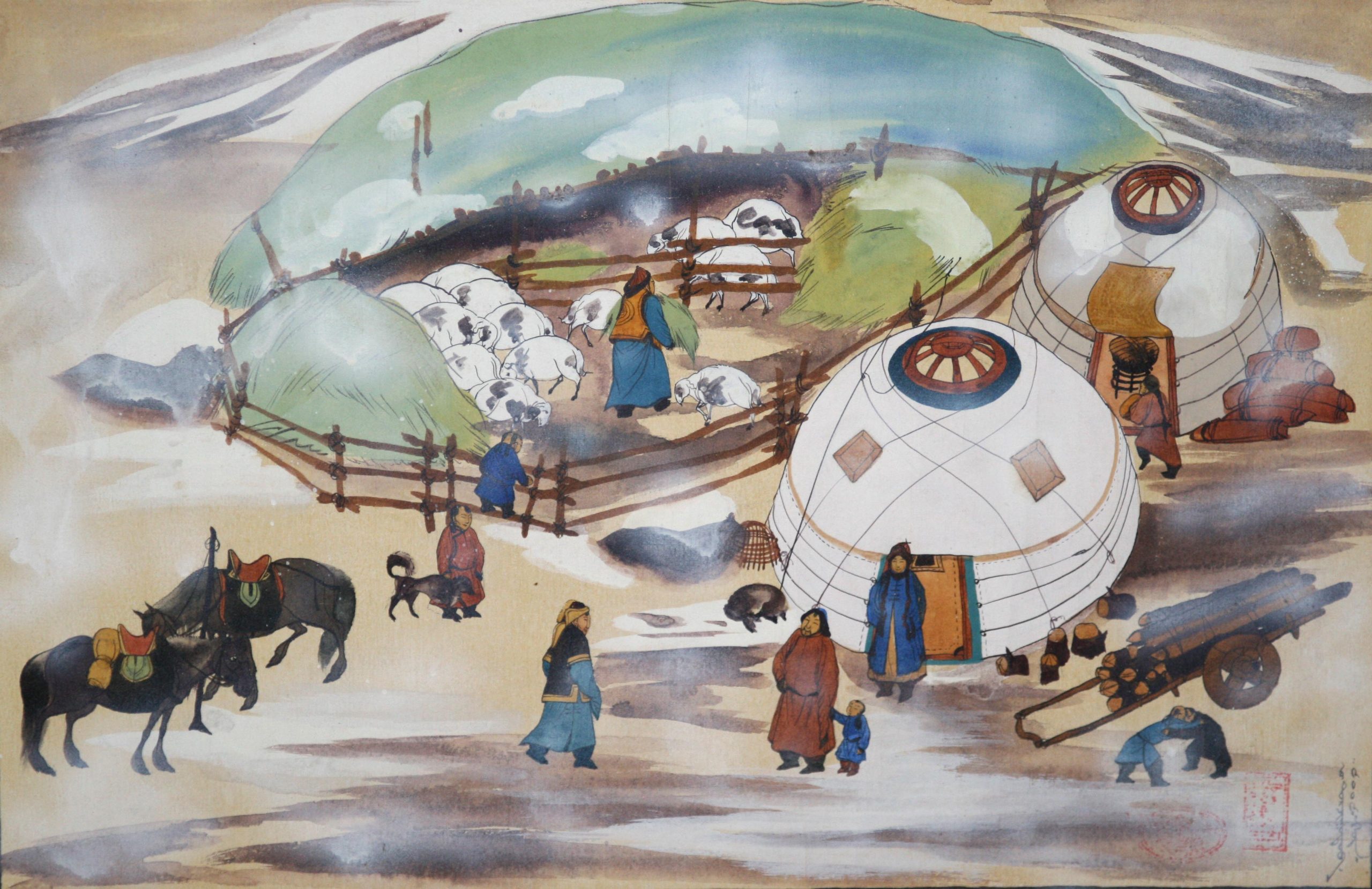Mongolians have a rich tradition of greeting and respect.
The custom of respect for Mongolians is that in a strict order and tradition, a person who is younger or a guest coming from abroad greets them first, and if they have not seen each other since the New Year, they do so.
Hello? A younger person greets an older person.
Haven’t seen you in a while, how are you?
Are you at peace? is called
In response: – Good. How are you?
Good. What’s up?
Peace is good.
Is your work productive? is called
If two people meet during the day, in the morning- Did you sleep well? – Slept well.
What’s up? – It is said to be peaceful. In the evening – Have a good night’s sleep. Have a nice vacation. – Thank you. Have a good night’s sleep.
Mongolians first ask about the well-being of their elder brother. Scholars, rulers, and knights should be sought for peace by common people. There is a reason that when people greet each other, they greet each other in order of age. The etiquette of welcoming and saying goodbye to guests is as follows, in order of severity.

In this: The owner of the house is the guest:
1. Greet and say goodbye at the front door of your home or office
2. Greet and say goodbye only at the door of your house or room
3. Stand up and say goodbye to your home without going out
4. There will be greetings and farewells sitting at home.
However, the first two types of them are performed when meeting a person who is older or noble, and the latter is performed when meeting a person who is younger than oneself. In doing so, “elder brothers” refers to positions and degrees of severity, not just age.
When welcoming guests:
How are you?
Did you come well?
To the person who went to school for the type of case he went to:
Did you study a lot?
Is the academic book high?
If you went on business, did things go well ?
Is the work successful? Did the job work? etc, the person who comes answers everything kindly.
When saying goodbye to a guest:
May your golden yellow be auspicious! Go easy on your golden yellow road! Go well! The person who is walking says to everyone who says – Please sit well or says to the public: – Please sit well everyone. Goodbye.

SALUTERS SHOULD GREET
Khalkh people have a tradition of greeting and greeting, which has been widely used throughout their lives.
The greeting customs of the Khalkh people are adapted to the four seasons of the year, blessing and thanking the work of the person they meet, and then wishing for peace. Here are the greetings and sayings of the Khalkh people according to the four seasons:
It includes:
Have a nice summer in the summer.? Are the animals getting fat? Do you have plenty of vegetables?
In the fall: Did the herd get enough fat? Are vegetables good?
In winter: fat with feathers, how are you in winter? How are you?
In the spring: Is it a good spring? Did the herd get fat in the winter? Is the flock growing? etc., the words of greeting according to the season were always related to the symbol of valuing the prosperity of the herds and husbandry that the Mongolians have been tending to.

Also, the tradition of blessing the work done by people has been widely passed down. For example, when greeting people spinning wool: – May your stick be fine. May your spun wool be fine! and greeted: – May he stay strong and happy! He thanked in return, expressing that he had received the blessing.
During milking: – Let the sheep have milk!
When he was making felt, the person who came said: – May you have a back like Durdan, as white as Dun! – May it bow like a bull’s forehead, – May it bow like a stallion’s mane! He blesses his work.
Accepting these blessings, he replied: – May that blessing remain! The response was to say, “May the blessings sink in (baitugai).
And when greeting the grooms who are brushing the horses: – Are you riding well? – Is the horse riding well? – There is a folk tradition that is born in the meaning of work.
For example, when you meet a shepherd, ask: – Is the flock well? In the evening, when the sheepman comes, he asks: – Are the sheep grazing well and the cattle resting well? is greeted by asking.
If the pilgrims meet on the way, they will ask in the right direction, – Is the journey going well? where is the capital? etc. should be greeted with respect.
Also, “What is the tone?”, “Is the action effective?” he greets with a friendly and business-like attitude.


